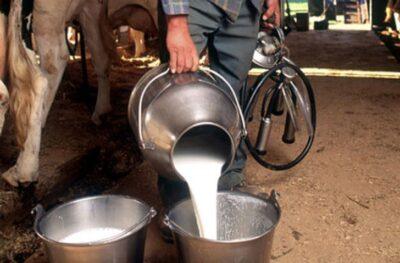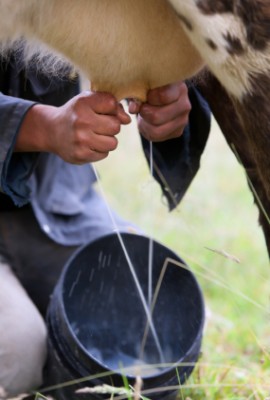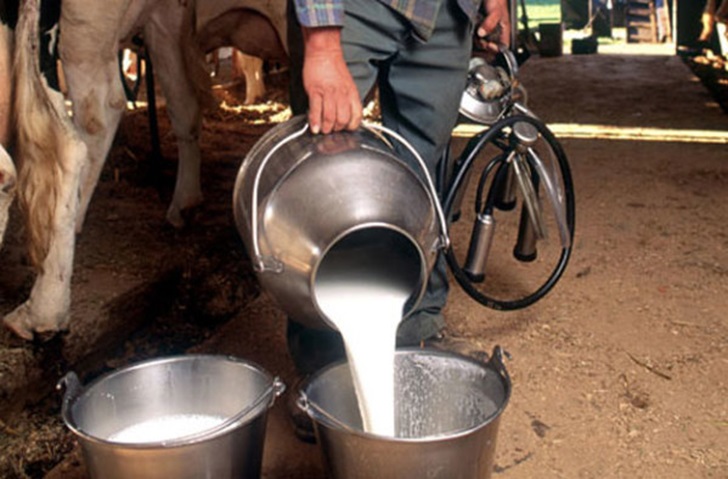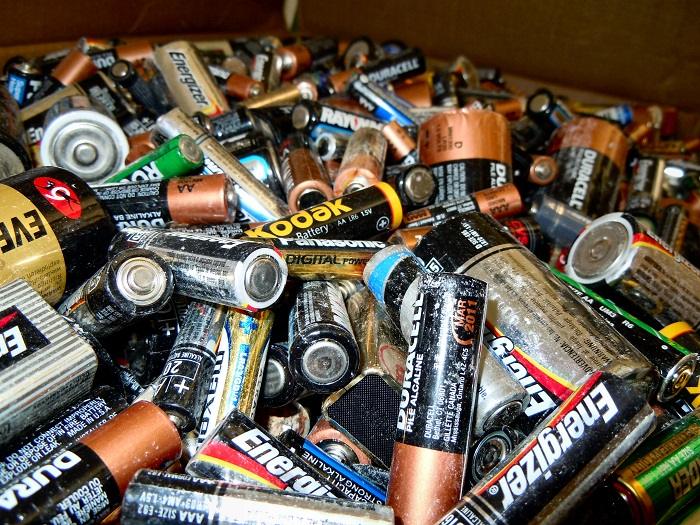
There is quite the debate between raw milk users and pasteurized milk users. Opinions on the subject are often quite strong and unfortunately these opinions are shared as fact on both sides of the argument. When it comes down to the milk you get at home from your cows or goats, it can be a difficult to decide whether to go raw or pasteurize.
What is Pasteurization?
It’s a bit surprising that some people are under the assumption that pasteurization is some kind of elaborate process involving chemicals. Pasteurization is simply the act of heating milk to a temperature that kills bacteria. This temperature can vary from 145 F to 280 F depending on whether the milk is being pasteurized or ultra-pasteurized.
Everything You Need To Know To Keep A Cow Healthy, Happy And Productive …
The FDA claims that this process doesn’t change the taste or nutrient value of the milk. Many raw milk advocates claim the complete opposite – that raw milk tastes better and the process of pasteurization kills healthy bacteria as well as destroys vitamins like D and C.
Is Raw Milk Beneficial?
Whether raw milk is beneficial seems to be subjective for most people. Some of the benefits people claim raw has, include it having:
- Healthy bacteria and probiotics
- Higher levels of calcium, potassium and magnesium
- Healthy fats in the form of conjugated linoleic acid, butyrate and omega-3 fatty acids
- Better digest qualities, even for those with lactose intolerance
You can find plenty of stories of people claiming that switching to raw milk positively impacted their health and even reversed health ailments like allergies. There are very few cases of people becoming sick from raw milk, especially if you compare how often food poisoning occurs from common store-bought foods every day.
 Raw milk from your own milk cow kept in sanitary conditions and fed a healthy diet is often considered safer than store-bought raw milk, since you don’t know the exact conditions the cows are kept in and to what containments the milk may have been exposed.
Raw milk from your own milk cow kept in sanitary conditions and fed a healthy diet is often considered safer than store-bought raw milk, since you don’t know the exact conditions the cows are kept in and to what containments the milk may have been exposed.
Can You Pasteurize Milk at Home?
If you feel uncomfortable drinking raw milk or otherwise wish to drink pasteurized, you’ll be happy to know that you can complete the process right in your own kitchen. As mentioned earlier, pasteurization is nothing more than heating your milk to a certain temperature.
This Book Clearly Illustrates What An Easy And Rewarding Experience Raising Goats Can Be.
All you need is a clean kitchen, a large pot and a heat source like your stove. You also will need an accurate thermometer to monitor the temperature of the milk and a timer to ensure you heat it for long enough.
Use a stainless steel pot and heat the milk to 145 F slowly, stirring during the entire time. If you use a double boiler, you won’t need to stir as often, as this style of pot reduces the chance of scalding. Once the milk reaches 145 F, you want to keep it at the temperature for 30 minutes.
After the time is up, you will remove the pot and cool it immediately. The best way is to fill your sink with cold water and ice cubes so you can dunk the pot right away. Continue stirring until the milk is completely cooled to 40 F, and then place in your refrigerator.
Home pasteurized milk will last just as long in the fridge as store-bought milk.
What If You Want Raw Milk?
If you are a fan of raw milk, it is important to keep your livestock and your milking parlor as clean as possible. The hair around the animal’s udder should be keep trimmed back with scissors or clippers. The udder should be wiped down with anti-bacterial wipes prior to milking. Always wash your hands if you hand milk, or use latex gloves.
If you use a machine, you must keep it clean and sanitized. Your milk can or container needs to be kept equally sanitized. Where you do your milking should be kept tidy and free of debris. It would be ideal to use a stanchion for goats and an area with an easy-to-clean floor for cows. Milking on a concrete floor or rubber mats can make for a quick clean-up.
Do you drink raw milk or pasteurized? Please share your opinions in the comment section below!
Harness The Power Of Nature’s Most Remarkable Healer: Vinegar










